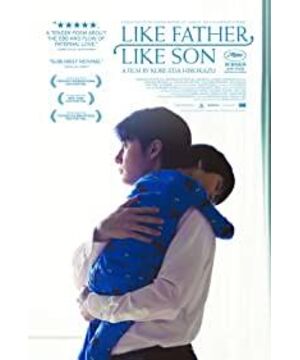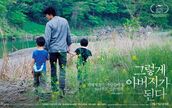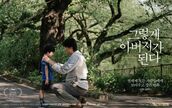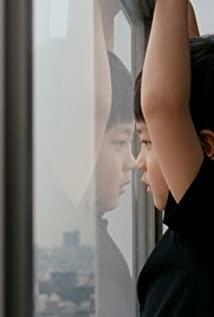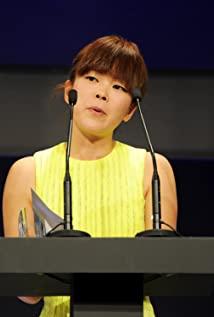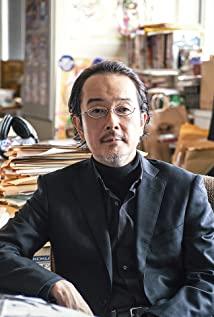People in Africa can't see "The Thief's Family", which has been well-received recently, so they have to dig out other works by Hirokazu Koreeda to enjoy. I watched "Like Father Like Son" on Sunday night.
The progression of the plot is very clear: first present a perfect family of three - the father has a successful career, the mother is gentle and kind, and the son is lovely and sensible; then break this beauty and bring conflict - the child is wrong; then enrich the connotation - The cooperation and confrontation between the two parties, open or secret, and other characters explain some secrets; the last temporary happy ending.
Many of them are people who have never failed. They are strong and shameful, but they are also very respectful when facing children. Green loves Keita with all her heart, but she also struggles with the bond between mother and son when she looks at the photos of her own son. Xiongda is a petty citizen, loves money and lacks opinions, but he is never ambiguous on the issue of right and wrong, and he is more dedicated to getting along with the children. Yu Gary is aggressive as soon as he comes on the scene, but is a mother who maintains the family. In fact, these people have flaws in their personalities, so they are all ordinary, and there are many around us, but which personalities should be chosen to put together, so that they can cooperate and conflict, this shows the creator's ability.
While adults are handled richly, children are shaped to be simple. Keita has been obediently completing the task from beginning to end, which is his obedience; Liu Qing continuously asked "why" and "why not why" at Nonomiya's house, which was his resistance. When adults exhaust their minds to strive for the best solution, children unconditionally trust them. Children are always the angels in Hirokazu Kore-eda's works.
On the question of "whether or not to change children", hospitals, lawyers, and many fathers all gave affirmative answers, and many showed entanglements, but obviously tended to "change"; the Zhaimu family did not have a clear attitude , has been in the role of obeying the arrangement; Green is overwhelmed and gradually inclined to "not change". From the "Metamorphosis"-style mutual adaptation to the exchange of families between Qi Tai and Liu Qing, it is the result of rational thinking by all parties, integrating blood kinship, long-term plans, personal interests and other elements. Of course, the result of the exchange was not ideal. Kai Tai was lost, and Liu Qing rebelled. Both children used their own methods to silently confront the decision that they had no ability to change.
Rational decisions are often not the most pleasant decisions. It's not easy for parents after swapping children. There are a lot of key points in this passage. First, it was decided that he led the way, and secondly, he was also the protagonist of "Metamorphosis". He was attacked by the piano, roses, pictures and other details in turn at first, and when he finally looked at the photos, his elite (cold-blooded) image finally collapsed, and he took the initiative to ask for the child to be replaced, bringing a temporary happy ending.
I keep adding the attribute "temporary" before "happy ending" because I can't -- and probably no one can -- see the future. In this story's duel of reason and emotion, the latter clearly wins. But I always feel that this victory is very unstable. Is it really emotion that wins over rationality? Could it be inertia?
After six years of getting along, in Yu Gary's words, "even a kitten and a dog can't make a decision easily," let alone a child. Sensibility is naturally an important aspect. Pianos, roses, pictures, and photos are all symbols of Keita's many feelings. But at the end, Liu Qing and Keita gradually developed feelings for the new family. This joint is likely to be the node of "hold on for a while and it will pass", and it is the time when the new inertia replaces the previous inertia. Many of them are people who like to succeed. Successful people often have their own inertia and are reluctant to break it easily. On the other hand, Zhaimu seems to be more natural. Maybe it is because of the difficulties in life that they have improved their adaptability.
Therefore, many final decisions can be said to be caused by emotions, and we cannot deny the inertial factors. Seeing the maximization of rational interests is often said to be cold-blooded by people; decisions made too emotionally, there are also stories of later regrets; and doing things according to inertia can maintain the current life and self to a large extent, It might be a form of insurance.
View more about Like Father, Like Son reviews


